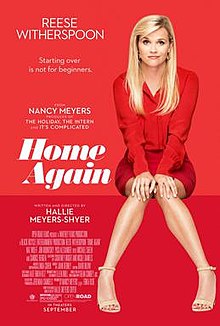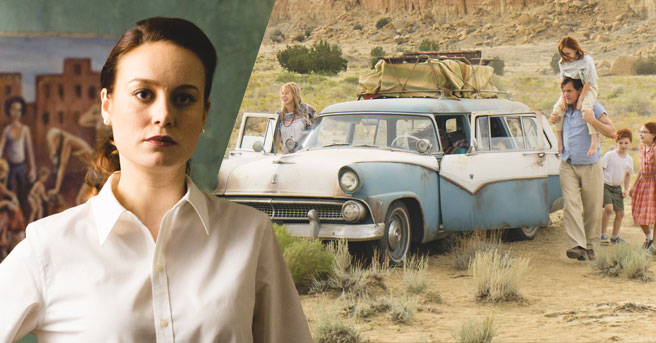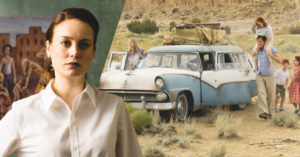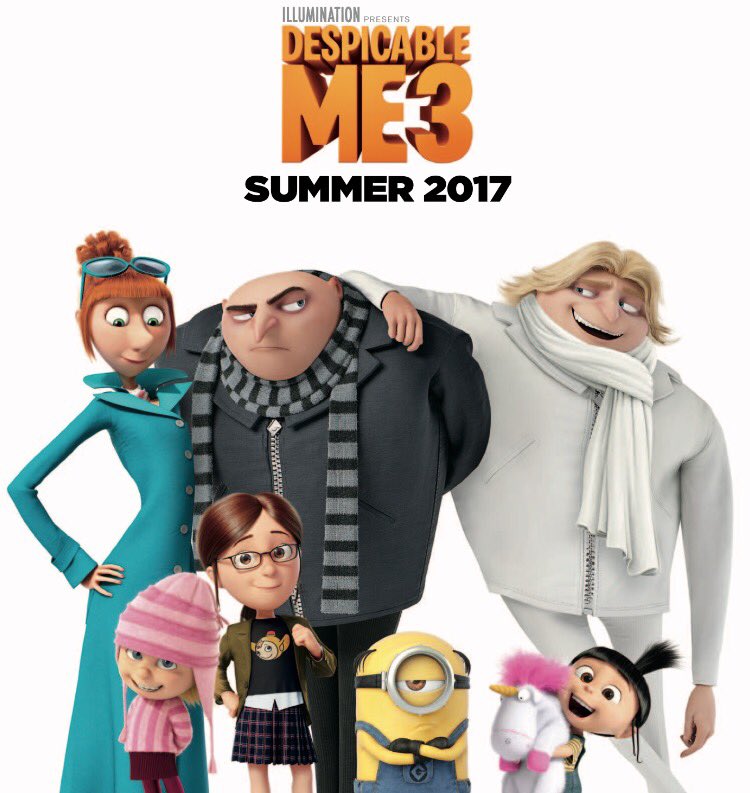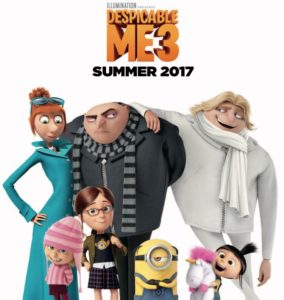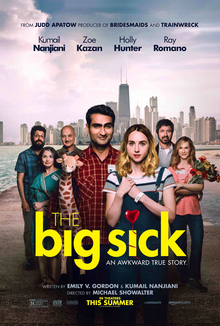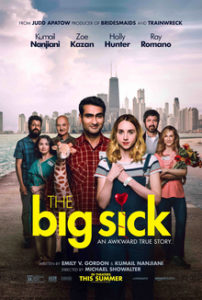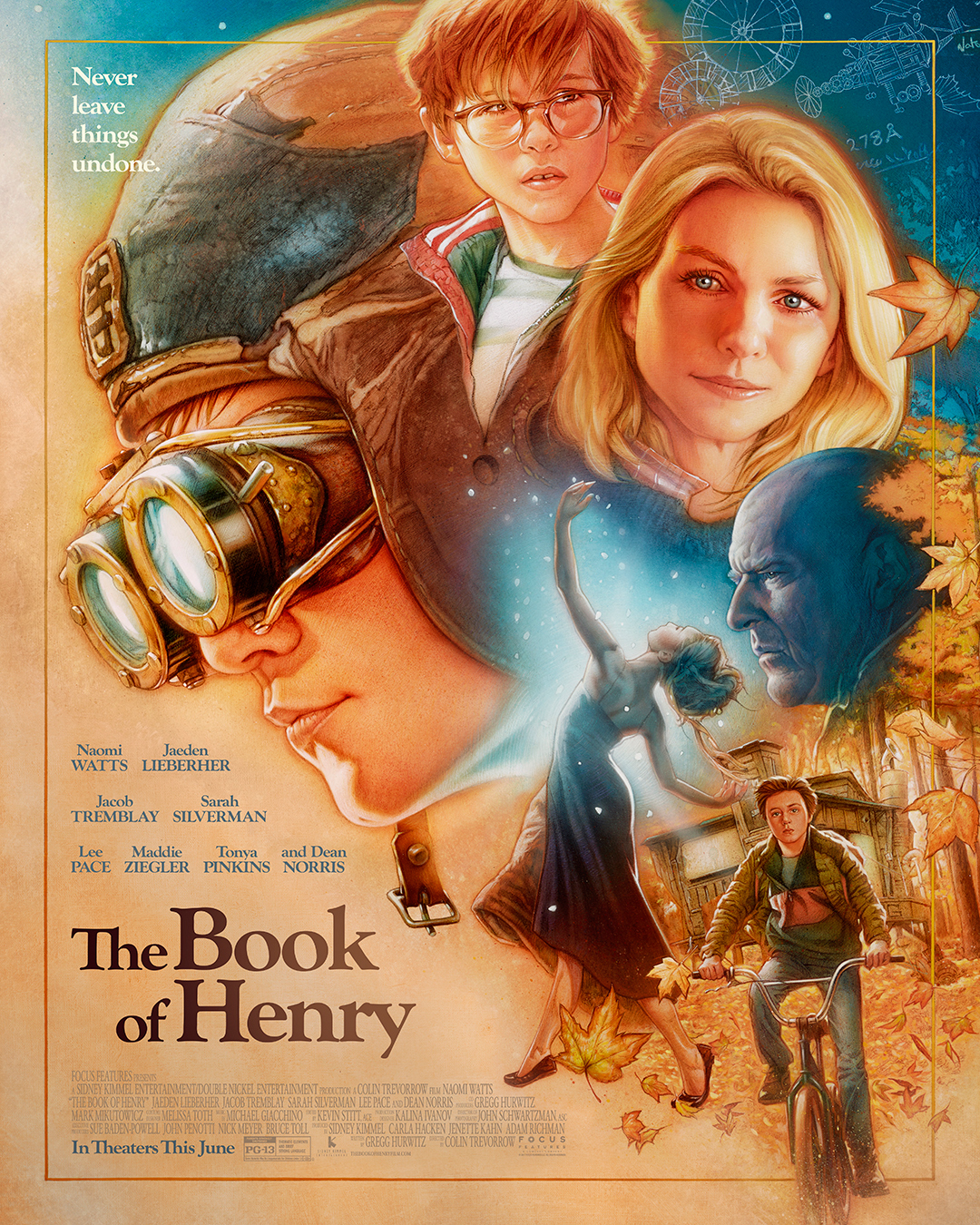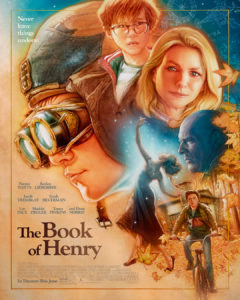Home Again
Posted on September 7, 2017 at 5:17 pm
B +| Lowest Recommended Age: | High School |
| MPAA Rating: | Rated PG-13 for some thematic and sexual material |
| Profanity: | Some mild language |
| Alcohol/ Drugs: | Drinking and drunkenness, marijuana, discussion of antidepressant medication |
| Violence/ Scariness: | Tense family confrontations, scuffle |
| Diversity Issues: | None |
| Date Released to Theaters: | September 9, 2017 |
| Date Released to DVD: | December 11, 2017 |
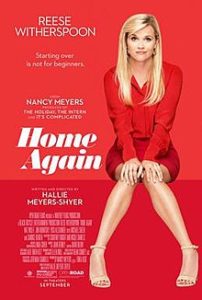
Producer/director/writer Nancy Meyers has the formula on lockdown: Take one Oscar-winning performer, preferably of a certain age (Diane Keaton, Anne Hathaway, Robert de Niro, Meryl Streep, Kate Winslet). Create a setting of lush, heavenly comfort with soft pillows, gleaming surfaces, white wine, and luscious food. Add a generic title (“The Intern,” “The Holiday”). Put some overly familiar pop songs on the soundtrack and use them to hide the lack of dialogue in scenes when we should be allowed to hear what the characters are saying that is making them think differently about each other. Settle back for a story where the female character is ADORED by everyone and also very capable and pretty much right about everything.
Whether her daughter absorbed all of this by osmosis or is merely a fully-owned subsidiary of the Meyers operation, we may never know. But “Home Again,” the first film from writer/director Hallie Meyers-Shyer is produced by her mother and follows exactly the same formula. It is, to say the least, highly unusual for a first-time writer/director to helm such a high budget, high-profile project, starring, yes, an Oscar-winner, Reese Witherspoon, as yes, a women of a certain age who lives in a spectacularly gorgeous home (Fountain in front! Guest house in back!). But Meyers is a reliable commodity, and as generous with her daughter as her ever-beneficent heroines are in the films. Remember Streep bringing out all those pies for her friends?
If there are no surprises here, one of the non-surprises is that the movie is an easy watch, combining, as Meyers films do, pleasant fantasy with aspirational settings. I know I’ll watch it again when it comes on cable, or if I have the flu or need to fold laundry.
Witherspoon is Alice, as in Wonderland, a mother of two who has moved into her late father’s house in Los Angeles because she and her music industry producer who wears leather bracelets husband Austen (Michael Sheen) have separated. Her father was a much-married, Oscar-winning screenwriter and director because apparently that is pretty much the only world she knows or the only one we can dream of.
Alice goes out with friends on her birthday and gets tipsy with three young men who have just arrived in Los Angeles after success with a short, black and white film they are hoping to turn into a feature. She and Harry (Pico Alexander) end up in bed together, though too drunk to do anything. The next morning, Alice’s mother (Candace Bergen) arrives, befriends the three young men, and invites them to stay in Alice’s guest house.
Alice is against this at first, but comes to enjoy it, as the guys help her with the house and her girls and she and Harry end up doing what they were unable to do that first night. The ultimate seduction move is, of course, fixing the hinge on her cabinet, and I don’t say that metaphorically. They all of course ADORE her and are themselves adorable. Enter Austen, wanting to assert his alpha male status and win back Alice because of course he ADORES her, too.
So, basically a high-end Hallmark movie, not that there’s anything wrong with that.
NOTE: This is the second movie in a row for Meyers with an inappropriate and borderline offensive “joke” about children who take antidepressants. What’s up with that?
Parents should know that this movie includes sexual references and situations, drinking and drunkenness, as well as family conflicts and divorce, a child dealing with stress, and a scuffle.
Family discussion: Were you surprised by Alice’s decision? How did Harry help her understand what she needed?
If you like this, try: “The Holiday” and “It’s Complicated” — and you can glimpse writer/director Hallie Meyers-Shyer in her parents remake of “The Parent Trap”

